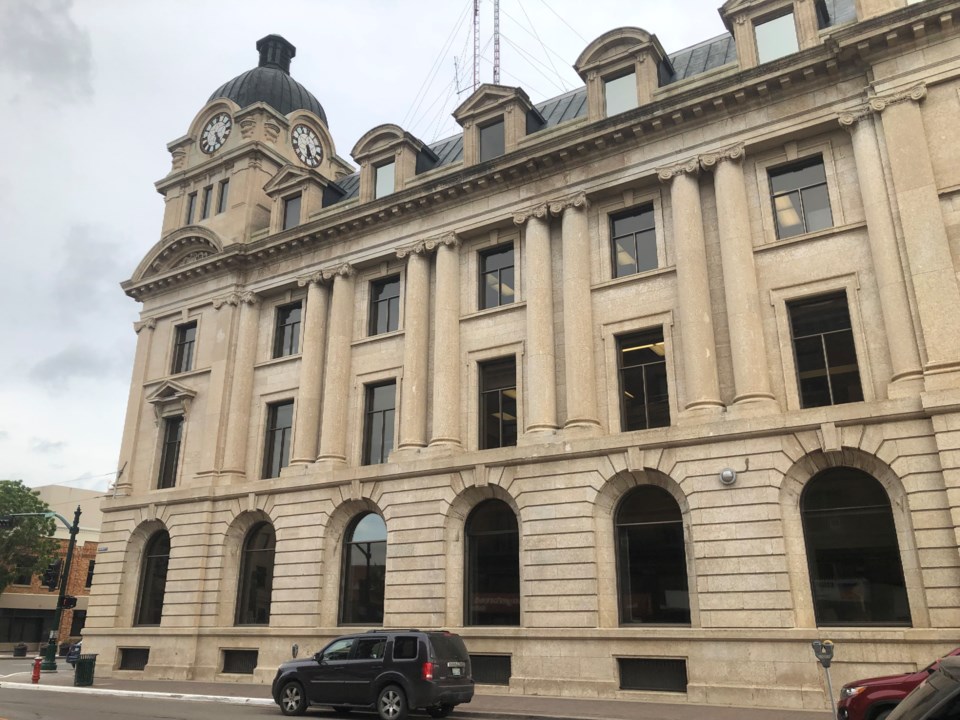Dcespite the challenges of the coronavirus pandemic, the City of Moose Jaw finished 2020 with a surplus of about $30,000.
City hall received $48.35 million in revenue by Dec. 31, 2020, which represented about 98 per cent of budgeted income, according to a city council report. However, the municipality did not receive $1,117,000 in income as budgeted.
Meanwhile, total expenses were $48.32 million, representing about 98 per cent of budgeted expenses. Due to savings seen during the pandemic, city hall did not spend $1,147,000.
This left a surplus of $29,854.
The information was part of a fourth-quarter/year-end financial report that city administration presented during the Feb. 16 regular city council meeting.
Council voted unanimously to receive and file the document.
An early financial update
It’s not normal practice to provide council with a year-end report this early since official results arrive in May after months tabulating all bills and receipts, finance director Brian Acker explained. His department provided this data now since council completed the budget in December, thus freeing up department staff to produce this document and create financial forecasts.
While Moose Jaw has a small surplus now, that could change once all revenues and expenses are finalized, he added.
Revenues
Municipal tax revenue was higher than budgeted after city hall received favourable assessment appeal decisions from the Saskatchewan Municipal Board for 2017, 2018 and 2019 — this money of $700,000 was not received those years — that contributed to the surplus, Acker said.
There will be some financial benefit — about $275,000 per year — due to those victories, but he cautioned council about receiving more since future assessment appeals would put the city into “the hamster wheel of appeal process.” The municipality would initially lose assessment revenue for a few years before likely receiving it back in the future.
Since 2021 is a re-evaluation year for properties, more revenue from those will likely flow into city coffers, he added.
Revenue was down for licences and permits last year because council waived parking meter collections from late March to early September, said Acker. Income decreased by about $410,000, while building permit revenue also dropped $70,000.
There was a major reduction in revenue for fines and penalties, primarily related to the city receiving less money from photo radar fines after the provincial government changed the formula, he continued. City hall expects to receive about $375,000 from photo radar versus the budgeted $637,000.
City hall did not enforce parking meter penalties from late March to early September, either, so that resulted in lost revenue of $105,000.
The municipality waived outstanding taxes and surcharges for interest and tax penalties from April to late September, which resulted in less revenue of roughly $160,000, said Acker.
Revenue for recreation services was hard hit after city hall closed all recreational buildings when the pandemic was declared. While the buildings have now re-opened, they operate at less capacity and bring in less revenue, he continued. Revenues were down roughly $730,000 compared to budget.
Expenses
Expenses in the general government category were down by roughly $764,000 due to reductions in areas such as the city clerk’s department, human resources department, planning and development, and employer-paid benefits.
The public works department spent $600,000 less than budgeted, with $538,000 not spent to plow snow or sand streets.
“That’s something we’ve seen the last couple of years. That’s certainly had a positive impact,” said Acker. “But 2021 is looking like a normal year, so we might not see that going forward.”
The recreation department also saw lower expenses with the closure of recreation venues, but these savings were offset by increasing the subsidy to help operate Mosaic Place, he added.
Other reductions in revenues and expenses indicated:
- Transit: revenues decreased by roughly $140,000 after transit fees were waived, while expenses were reduced with vehicle maintenance
- Waterworks: revenue came in at $12.5 million, which was $51,905 more than budgeted. Waterworks was able to contribute $925,000 to its reserve account
- Sanitary sewer: revenues were $300,000 less than budgeted and expenses were $180,000 less
- Solid waste: revenues were about $70,000 less than budgeted and expenses were roughly $200,000 less than planned, leading to a reserve contribution of $130,000.
The next regular council meeting is Monday, March 8.




